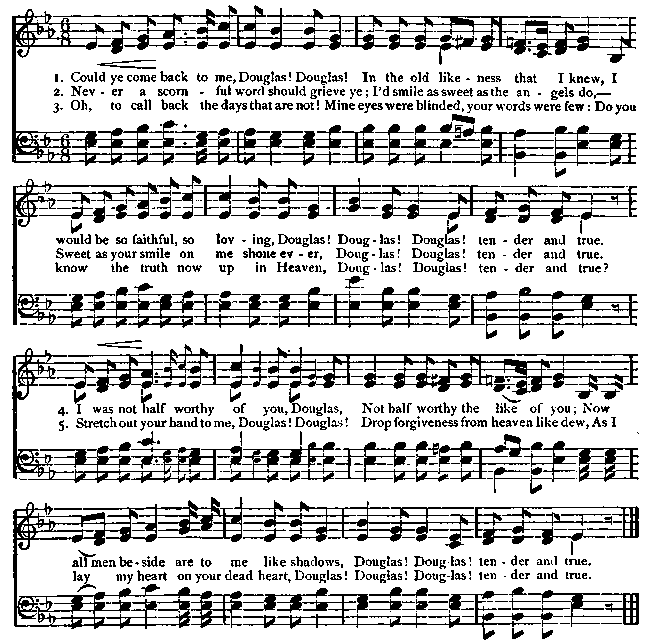Franklin Square Song Collection - online songbook
200 favorite songs and Hymns for Schools, Homes Lyrics & Sheet Music
| Share page | Visit Us On FB |
|
134 |
FRANKLIN-SQUARE SONG COLLECTION. |
||||
|
Music at Home,—Do all you can to cultivate musical taste in your children; let them hear as much music as possible. Invite some one who can play bright and easy music, and let the children hear it The music should be attractive, melodious and animated—a few songs, some easy galops or marches, and perhaps a quiet little piece or two. Make them understand that they must listen to music in silence. They are not allowed to talk while others are speaking, and they must give the same attention when any one plays or sings. By this means they will learn to think more of music, and to appreciate it |
more highly. There is nothing to prevent children from taking up music as naturally as reading and writing. The notes and the alphabet should be learned at the same time. At five and six, children learn to sing naturally and easily, and little songs and exercises should be mingled with the lessons of the primary reading and spelling book. Experience teaches that nearly all children who can speak may be taught to read vocal music and to sing. Some knowledge of music should form a part of every child's education. At the same time, it is evident that it is often useless to carry a child |
||||
|
DOUGLAS, TENDER AND TRUE. |
D. M. Muloch. Lady Jane Scott. |
||||
|
|
|||||
 |
|||||
|
through a long course of musical study when he or she has no special aptitude for it. If they do not care much for it, let them study it enough to understand at least its general principles and to store the memory with a goodly number of tunes, both of songs and of hymns, for their future pleasure and profit.
The most popular and truly meritorious of Moore's writings were his " Irish Melodies," written from time to time between the years 1807 and 1834. Byron has said: " Moore is one of the few writers who will survive the age in which he so deservedly flourishes. |
He will live in the * Irish Melodies.' They will go down to posterity with the music; both will last as long as Ireland, or as music and poetry." Alison, in his History of Europe, adds this tribute to their meru, " His Irish and National Melodies will be immortal ; and they will be for this reason,—that they express the feelings which spring up in the breast of every successive generation at the most important and imaginative period of life. They have the delicacy of refined life without its fastidiousness, the warmth of natural feeling without its rudeness." |
||||